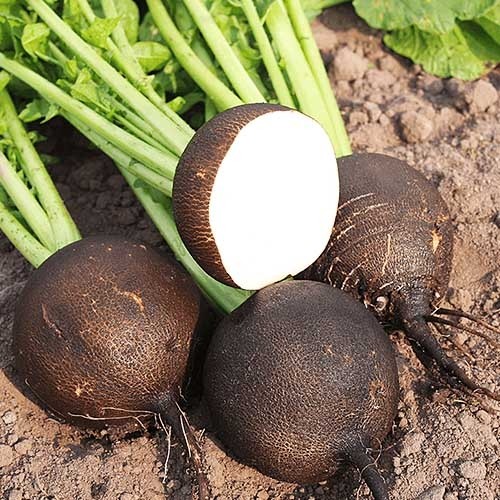Our 10 natural home remedies for a dry cough will help you fight the annoying dry cough. There are numerous common and effective home remedies for a dry cough, all of which are very inexpensive and for the most part available in every household. Onions, honey, and various cough teas, for example, are well-known home remedies that work quickly and save you from having to go to the doctor.
The causes of a dry cough are mostly harmless. Nevertheless, the dry cough is of course annoying and painful. Especially at night it disturbs the peace and depresses the mind. However, those affected should not go straight to the doctor and ask about medication. There are numerous well-known home remedies that can stop the cough. Most home remedies are inexpensive and usually available in every household. Some of these home remedies are presented here. In addition, a brief overview of the possible causes of dry cough should be given.
Possible causes of dry cough
Irritable cough, i.e. dry cough without sputum, can have many causes. Cough is one of the most common human disease symptoms.
It can occur, for example, as a result of irritation of the lower or upper airways by inflammation. Other possible causes are penetrating foreign bodies or allergic reactions. A dry cough can also occur as a side effect of some medications. These drugs include beta-blockers, pain and rheumatism drugs, and ACE inhibitors for high blood pressure.

Other possible causes of dry cough are chronic asthma, reflux disease, pleurisy, chronic heart failure, and pulmonary fibrosis. The onset of a cold can also cause a dry cough. Joint pains, runny noses, headaches, and sore throats then occur at the same time.
In addition to physical causes, mental illnesses can also cause a dry cough. The cough then occurs in paroxysms and can even last for several hours. At the same time, many sufferers constantly feel the urge to clear their throats. The dry cough occurs more intensely when there is emotional tension and stops during sleep.
Home remedies for dry cough
There are numerous home remedies for coughs and dry coughs. These can help without the patient having to see a doctor. In addition, the causes are usually completely harmless, such as the common cold, which everyone has to endure in their lifetime. However, one should pay attention to how long the cough lasts. If it doesn’t stop and you feel sicker instead of better, you should make an appointment with the doctor so that a serious cause can be ruled out. Otherwise, with the large number of home remedies, the most pleasant and helpful remedy should be there for everyone.
1) Inhale
Inhaling helps to moisten the dry mucous membranes. This calms the urge to cough. Inhalation should be repeated every three hours for optimal effect. If you don’t have an inhaler with a mouth and nose attachment, you can also use a bowl and towel in a classic way. There is a risk of scalding here, though, so don’t lower your head over the brew until it’s cooled down a bit. Sage is particularly effective against dry coughs. It not only moisturizes the irritated mucous membranes but also soothes them.
2) Onion Syrup
With this well-known home remedy, an onion is cut into pieces and mixed with honey or sugar. The broth should steep for about an hour. Those affected should take one tablespoon of the onion syrup in the morning, at noon, and in the evening. Furthermore, other useful recipes for making cough syrup yourself can be used. They all work against the complaints.
3) radish syrup
Radish can also be processed into juice instead of onions. For this, you should hollow out a black radish and fill it with honey. The syrup must steep for at least a day. Just like the onion, a juice will slowly form from which several spoons can be drunk throughout the day.
4) Potato wraps
Four to six medium-sized potatoes are boiled until soft, placed in a tea towel, and then mashed. When the compress has cooled, it is placed on the chest and left there until it is completely cold. To avoid burns, the temperature of the wrap should be tested on an insensitive part of the body beforehand.
5) Cough Tea
The tried and tested cough tea contains medicinal plants that loosen mucus and make it easier to cough up. Thyme, cowslip, and anise are examples of these medicinal plants.
Herbs that are primarily intended to relieve the urge to cough are ivy, marshmallow, and buckhorn. A large pine tea also helps because you should drink a lot in case of a dry cough. Liquid prevents the mucous membranes from drying out particularly effectively.
6) milk with honey
This old home remedy, often recommended by grandmothers, is said to be effective against coughs. However, something should be observed when using it: the milk should only be drunk while the cough is still dry. If mucus has already formed, the milk would increase mucus production and make the cough worse.
A glass of hot milk with honey before bed should help you sleep soundly without being woken up by the annoying cough.
7) Garlic
If you are affected by the annoying dry cough, you should rub the soles of your feet with the remedy garlic. The reflex zones for breathing are located on the soles of the feet directly under the toes. This zone should be rubbed with a cut clove of garlic, then you put a sock over it and lie down in bed.
8) Full baths with additive

Full baths with essential oils can relieve the urge to cough and help to relax the bronchi and the whole body. However, you should only take a bath if you do not have a fever or weakened circulation. Thyme, for example, is a good addition. It relaxes the bronchial muscles and loosens mucus. Eucalyptus has a beneficial effect on breathing and a spruce needle bath helps to strengthen the respiratory muscles.
9) mallow
The mallow adorns many gardens as an ornamental plant but is also an effective remedy for coughs. The mucilage in this plant relieves hoarseness, soothes inflamed airways, and curbs dry coughs. It is best to mix four teaspoons of dried flowers with half a liter of water in the evening and leave to steep overnight. The next day you can warm the liquid and drink three cups of it.
10) Cottage cheese wrap
This simple home remedy Quark is particularly effective for congested bronchi. It also calms the urge to cough.
Application: The quark is placed in the middle of linen cloth, the ends of which are folded in. The wrap is then warmed up using a hot-water bottle. The wrap is then placed on the chest. You should wear a wool scarf over it. You can put the wrap on for about ten hours.










